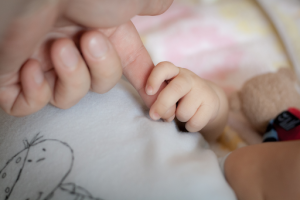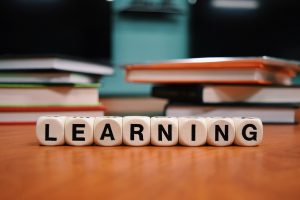17 Living with Learning Disabilities
Christine Colville; Kylee Mahedy; Ryan Mitchell; and Anthony Gutierrez
Living with Learning Disabilities
This chapter will discuss a broad spectrum of situations that come up with learning disabilities. A learning disability involves the brain’s process and how it causes difficulties comprehending or processing information and may be caused by several different factors. We will also be discussing ways of treatment for kids and adults that have been diagnosed with a learning disability.
Types of Learning Disabilities
- Dyslexia, also known as reading disorder, is characterized by troubles reading despite average intelligence. Problems may include difficulties in spelling words, reading quickly, writing words, “sounding out” words in one’s head, pronouncing words when reading aloud, and understanding what one reads. Dyslexia can be inherited through family genetics or developed later in life through a brain injury, stroke, or dementia. Dysgraphia is similar to dyslexia but specifically applies to the ability to write and spell.
- Auditory Processing Disorder (APD) is an umbrella term for various disorders that affect how the brain processes auditory information. Those with APD usually have a typical structure and function of the outer, middle, and inner ear (peripheral hearing). However, they cannot process the information they hear in the same way as others do, which leads to difficulties in recognizing and interpreting sounds, especially the sounds composing speech.
- Nonverbal Learning Disorder (NVLD) is a disorder characterized by visual-spatial, motor, and social skills difficulties. NVLD may include problems drawing, writing, telling time using analog clocks, performing arithmetic, and using social skills. Tasks that require motor coordination, such as tying shoes, may also be impaired. NVLD is another umbrella term for a range of disorders that typically affect only one or two of these skill sets.
- Autism is a condition related to brain development that affects how a person perceives and socializes with others. Autism is held on a spectrum, meaning that if you have Autism, there is a broad category that falls into, and no two cases are the same, therefore why it is called the Autism Spectrum. Autism can cause problems in a typical day to day social interaction and communication for people who fall on the spectrum. Autism spectrum disorder diagnosis also includes several different conditions that used to be diagnosed separately, such as autistic disorder, pervasive developmental disorder, and Asperger syndrome. These conditions are examples that can be are under the category of autism spectrum disorders.
What is the outcome of putting a label on a child?

Diagnosis is necessary for a child that might have a learning disability. This topic can be controversial because labeling can harm a child through their whole life and their parents. When it comes to labeling a child, you do not think the worst when you are at the doctor. The problems come with starting school, having to tell the teachers about your child’s disability. Parents also worry about their child’s relationships with other kids and in a safe environment. For instance, race, in-group/out-group status, and, if present, the nature of a disability has been shown to impact evaluations of exclusionary acts. This exclusion is a big reason why labeling can affect a social relationship regarding a learning disability—other parents’ problems and what they believe. According to research from the Illinois news bureau, they found that less than half of parents make a care plan for their child with a disability. This could be for multiple reasons for disbelief or shock of what is happening. Other causes can be that the parents do not know what to do and have to suffer from the anxiety associated with having a disability.
Tools For Those With Learning Disabilities
While learning disabilities can not be cured, there is a wide range of tools and resources available for children and adults with learning disabilities. Standard means that may help those with learning disabilities are highlighters and other ways to color coordinate information. Organization has been proven to be helpful for those struggling with learning disabilities. Some more technologically advanced tools include speech recognition systems. These systems identify spoken words and transform them into written text. Computers have been programmed to convert text into audio. These computers help those with reading and writing disabilities. Additionally, some calculators read numbers aloud for those with mathematical disabilities, and word prediction software helps the average person and those with spelling disabilities. The use of tools and resources may help you or someone you know get the assistance you need to perform learning tasks confidently with independence.
PVCC Resources:
Disability Resources and Services: Call 602-787-7171 to schedule an appointment or email dl-pvc-disability@paradisevalley.edu with any questions. The Disability Resources and Services provides information and services to students with any documented disability attending classes at PVCC, including learning disabilities.
Counseling: Appointments will be conducted via telephone due to COVID-19 for the time; call 602-787-6540 to schedule an appointment. PVCC counselors are here to help through personal, career, academic, and social situations. Counselors can provide strategies and resources to help build confidence and create an educational path that works for whatever you are struggling with.
Outside Resources:
All sites listed below offer a broad array of options regarding tools and resources that can help adults and children living with learning disabilities and provide information for those merely wishing to educate themselves on learning disabilities.
LDRFA (Learning Disability Resources Foundation): The Learning Disability Resources Foundation is a non-profit organization that helps those affected by learning disabilities. This is not only including the individual with a learning disability but also parents and educators. However, their programs are not exclusive to children, and they work with teens and adults. LDRFA has a special focus on low-income households whom they work to advocate for. Along with advocacy, they provide technology access to those with learning disabilities and those who educate them. There is no cost or fee to access the services they supply.
NCLD (National Center for Learning Disabilities): The National Center for Learning Disabilities works to improve local and national policies on learning disabilities that reduce barriers for those struggling and increase access for all. The NCLD also publishes reports and additional resources to help with the understanding of attention and learning difficulties. Additionally, they supply several scholarships and awards for those learning issues.
LDA (Learning Disabilities Association): The Learning Disabilities Association primarily works towards research. LDA works to identify the causes of learning disabilities and encourage research efforts into recognizing difficulties.
RSF (Raising Special Kids): A label can have such a significant effect on a child throughout their life, and it can be hard to cope with it. Luckily, we have resources to guide children and future students in the right direction. A non-profit organization called “Raising Special Kids” is a very great place for every type of solution for families and children. They deal with the full range of disabilities from birth to the age of 26. If you want to find more information on this organization, click on https://raisingspecialkids.org/ to access more information about what they do.
Media Attributions
- learning-1959541_1280 © Wokandapix is licensed under a Public Domain license
- Special Needs © Sarah Bello adapted by 3.0 is licensed under a CC BY (Attribution) license


